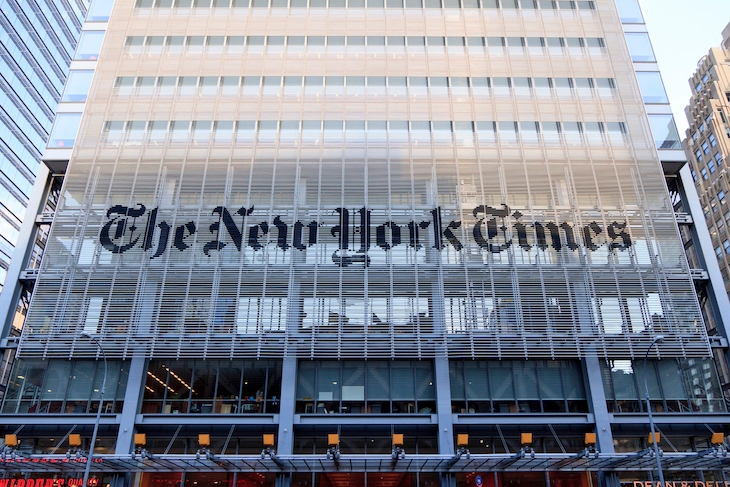It seems the New York Times has decided to continue its bizarre crusade against Britain, which culminated in last year’s outlandish claim that the nation lives on a diet of mutton and oatmeal (although, given current reports that the government is considering buying up Welsh lamb in the event of a no-deal exit, this strange claim could turn out to have been an unwitting prediction).
The latest pronouncement comes from the NYT’s European economics correspondent Peter S. Goodman on the front page of today’s international edition. In it Goodman writes:
‘The British pound has long possessed a mystique that transcends its marginal role in the global economy, conjuring memories of its dominance in the imperial age. But lately the currency has devolved into a sign of Britain’s diminishing fortunes in a present dominated by Brexit.’
Beyond the strange claim that the currency possesses a ‘mystique’, and the surprising implication that the City plays a ‘marginal role in the global economy’, Goodman’s assertion of British decline also understates the strength of the pound’s independence. Britain embraced the freedom of an untethered currency when it rejected the Euro, accepting that a fall in value would lead to increases in outside investment and a boost to domestic manufacturing.
But perhaps Goodman’s assessment of Britain’s economic health stems from more than just a dodgy grasp of monetary independence. In 2010, when Goodman left the paper for a stint at the Huffington Post, he admitted that his own prejudices would often seep into his reporting. He told the Washington Post that his writing had become, ‘almost a process of laundering my own views, through the tried-and-true technique of dinging someone at some think tank to say what you want to tell the reader.’ Mr S wonders whether this time Goodman has been employed in laundering the paper’s own rampant anti-British sentiments…







Comments